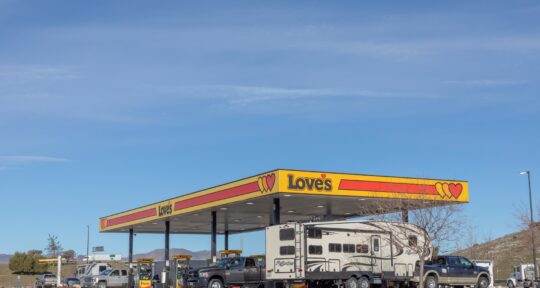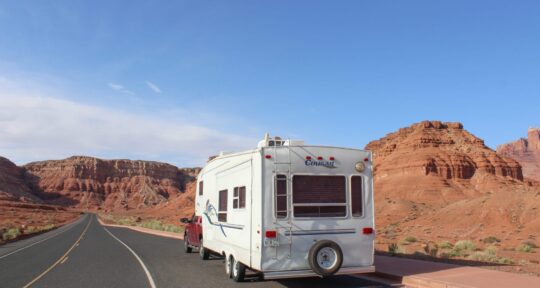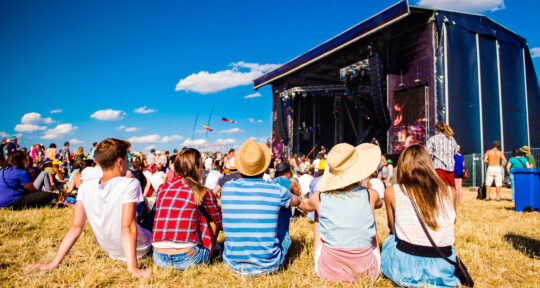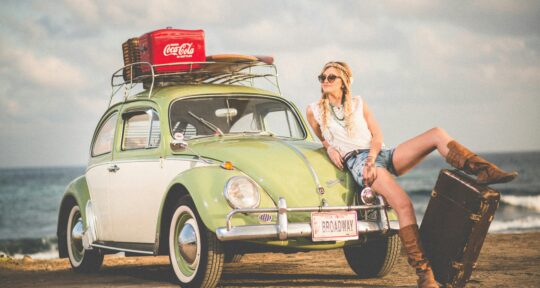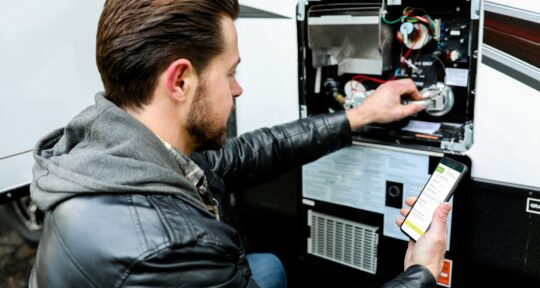Roadtrippers like to think of ourselves as tireless warriors. However, sometimes you have to sleep. And if checking in to a hotel isn’t an option, you’ll have to find somewhere safe to pull over at night.
I’ve spent a few years living in my van, traveling through the U.S. and Canada in both urban and rural areas, including New York City. More than just relying on my own anecdotal advice, however, I’ve asked a couple of other full-time vanlifers for their insight as well.
Here is the best advice for finding a safe place to park for the night.
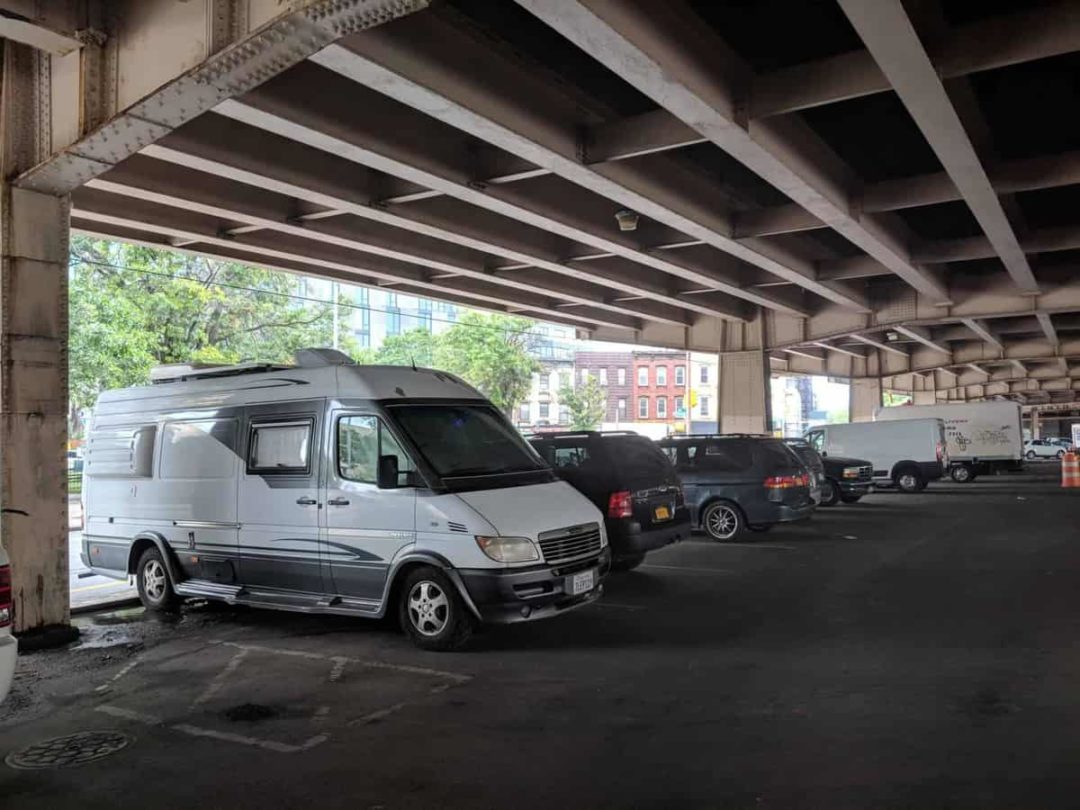
Finding campgrounds
Personally, I find that I sleep best when I’m in a quiet, natural setting. That generally means camping out whenever possible. Not all camp spots are created equally, though.
I’ve had good luck at national and state parks around the country. National and state park camping sites tend to be more spread out and feel more natural than privately operated campsites. That said, during the warmer months, they tend to fill up early—sometimes months in advance, especially on weekends. There are frequently last-minute cancellations, though. So, it’s worth stopping in, if you’re nearby, just in case there’s a vacancy.
National and state parks aside, my favorite camping—and this was seconded by everyone I interviewed for this piece—is dispersed camping on Bureau of Land Management (BLM) land, in national forests, or at one of the country’s amazing national monuments.
BLM land in particular is almost always fair game. Not only is there a lot of it all across the county, you can typically find a place to camp where you won’t see another single other person the entire time.
To me, camping on BLM land is the backpacking of car camping. By that I mean it’s off the grid—you won’t find showers or power hookups here. To that end, however, camping on BLM land is almost always free. So, what it lack in amenities it makes up for in affordability and peace and quiet.
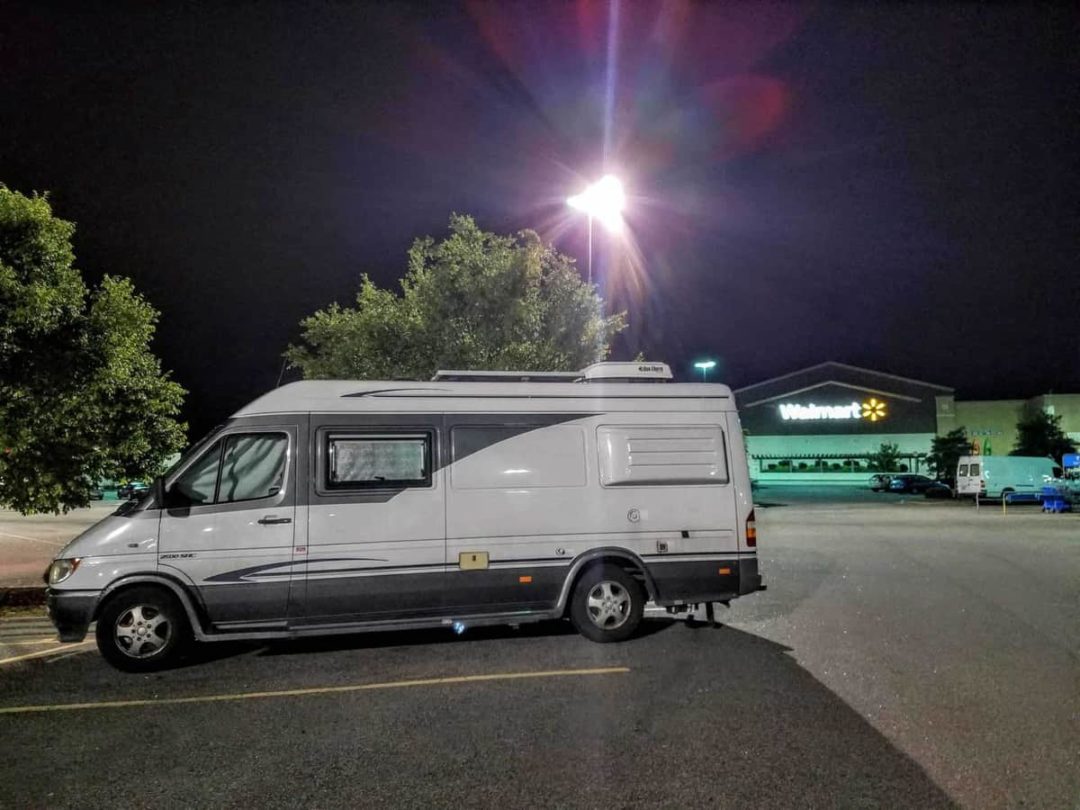
Back to business
Walmart has a policy of allowing overnighters at many of its stores, which is great. I estimate that I’ve probably spent the night at 70 different Walmarts around the U.S. and Canada over the years. While they aren’t glamorous, Walmart parking lots typically have good security and plenty of space to park. Remember to be courteous; don’t stay for more than a night or two and practice the principles of dry camping.
How the Walmart parking lot became an oasis for RVers and van dwellers
However, it’s important to note that not all Walmarts have this policy. Frequently, it’s on a city-by-city basis. For instance, virtually none of the Walmarts near Denver or Washington, D.C., allow overnighting. It’s worth calling ahead.
While Walmart may be the best-known chain friendly to overnighters, it certainly isn’t the only one. I asked my friend Lindsey (@girlgoneglamping), who has been full-timing it in an Airstream for the last 2 years, what her other go-to businesses are. These were her answers.
Cracker Barrel
Most Cracker Barrels are RV-friendly, have designated RV parking spots, and 24/7 surveillance. “Being a woman on the road, solo, these are my number one go-to spots,” Lindsey says. “They’re more common on the East Coast and in the South.”
Overnight RV Parking at Cracker Barrel
Cabela’s
Lindsey reports that she’s slept at a handful of Cabela’s sporting goods stores over the years. “They all had posted areas for RV parking,” she says.
Overnight RV Parking at Cabela’s
Casinos
Most casinos allow free overnight parking, though some charge a small fee if a big event is happening, like a concert or comedy show.
Overnight RV Parking at Casinos
Camping World
Camping World RV stores often don’t have a ton of space in their parking lots. However, many of them do allow overnighting.
Overnight RV Parking at Camping World
Flying J Truck Stops
They offer free overnight parking and free RV dump stations, including potable water. You can even fill your propane tanks at most of them—for a fee, of course.
Overnight RV Parking at Truck Stops
Costco and Sam’s Club
Both of these big-box stores are very RV-friendly. But, again, just like with casinos, make sure you stay aware of your personal safety.
Overnight RV Parking at Sam’s Club
Other
While not businesses in the traditional sense, Lindsey has also used church parking lots. “It’s certainly advisable to call ahead and ask permission before posting up in a church parking lot,” Lindsey warns. “If you’re a veteran, a lot of VFWs will allow you to overnight in their lots, too.”
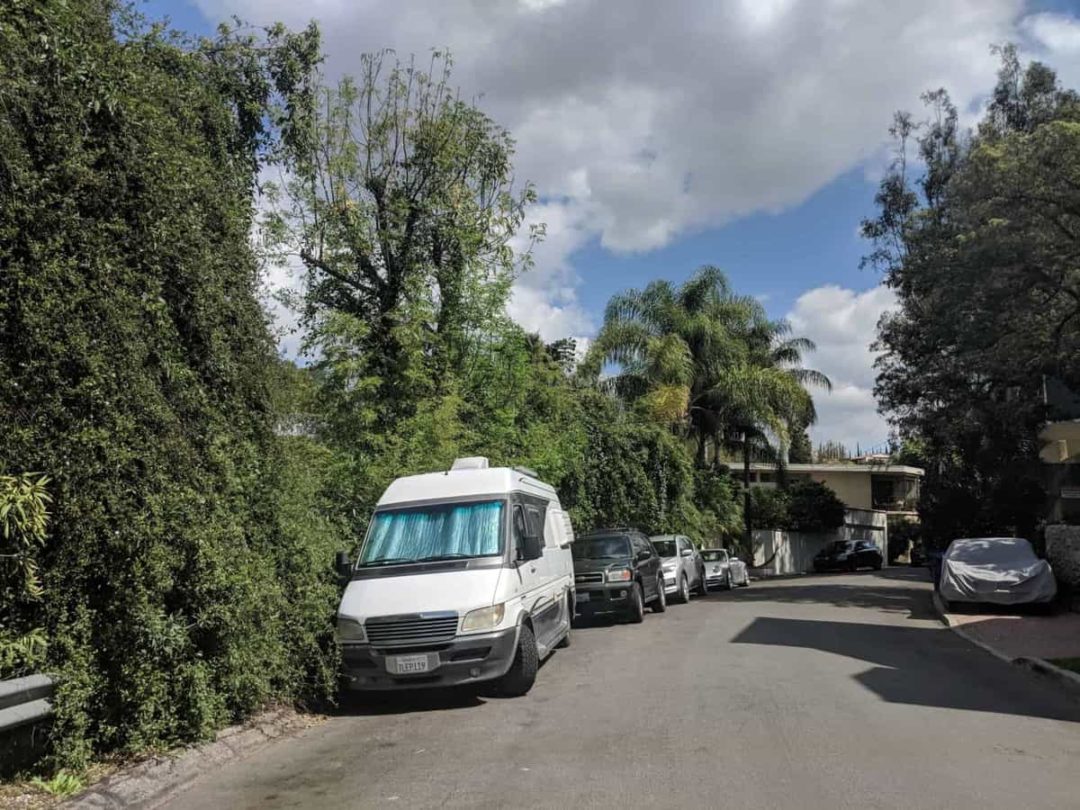
Urban boondocking: Dos and don’ts
I’ve spent a ton of time in cities and suburbs. In those areas, sometimes you can’t find any of the aforementioned options within a convenient distance. That means you’re going to have to find somewhere—anywhere—to park and get some shuteye. If you find yourself in that situation, here are a few areas to seek out—and others to avoid.
Don’t park near schools or playgrounds
Don’t park near schools or playgrounds. You may know that you’re not up to anything sinister. Others don’t know that, though, and parents are rightfully hyper-aware of their kids’ safety.
Do keep blinds drawn
Keep your blinds drawn. Be nice and quiet. Don’t draw attention to yourself. If you’re going to have your lights on to get some work done, you may benefit from parking near a street light, which will make your lights less noticeable.
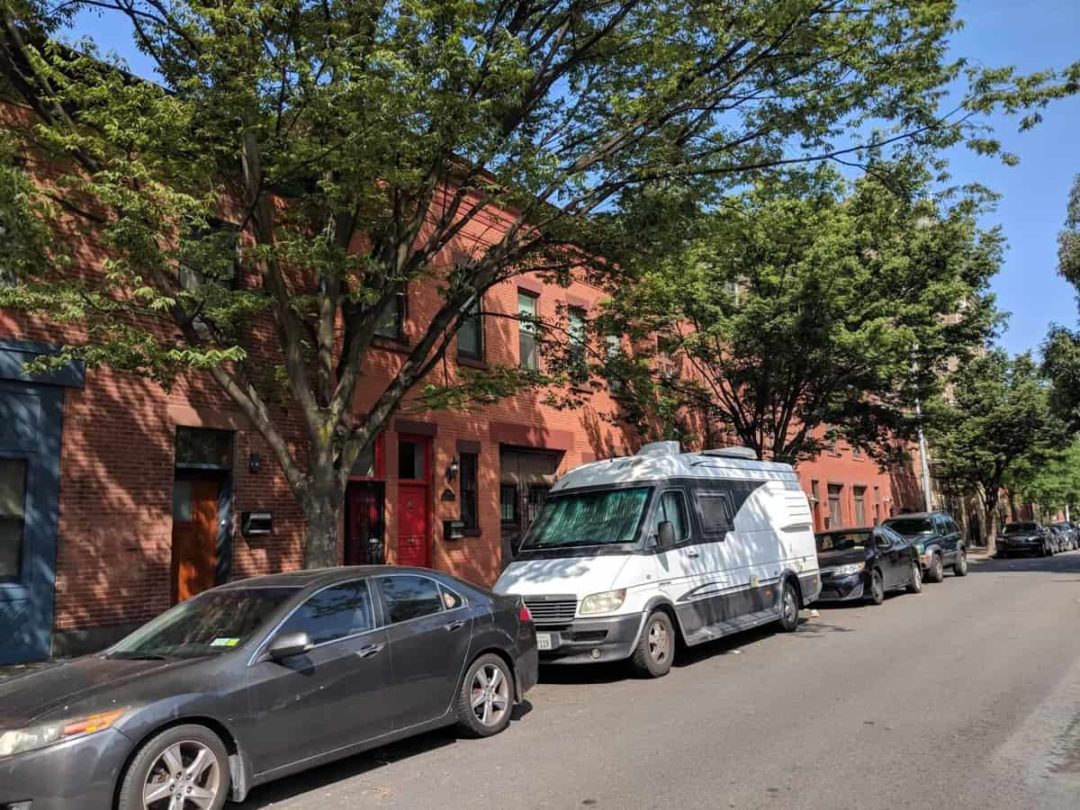
Do utilize meters and side street parking
Parking meters and alternate side parking can be your friend. If there’s street sweeping in the morning, or meters that start ticking at 9 a.m., locals will frequently avoid parking there overnight. I’ve used this trick for parking right in the heart of Brooklyn and Hollywood. Just set your alarm and make sure you’re gone before they start ticketing.
Don’t engage in hygiene after you’ve parked
I reached out to Bre and Lacey of the Ladies’ Van for their advice on this, too. “Be stealth!” Lacey tells me. “Get all of your nightly duties—brush your teeth, wash your face, etc.—done first and then find a spot, pull over, and go right to bed.”
Do stay alert
“Stay alert,” Lacey says. “There are debates on whether or not to answer your door if someone knocks. I like to not answer and just pretend I’m not in there.” If you have a ticket on your window in the morning, so be it.
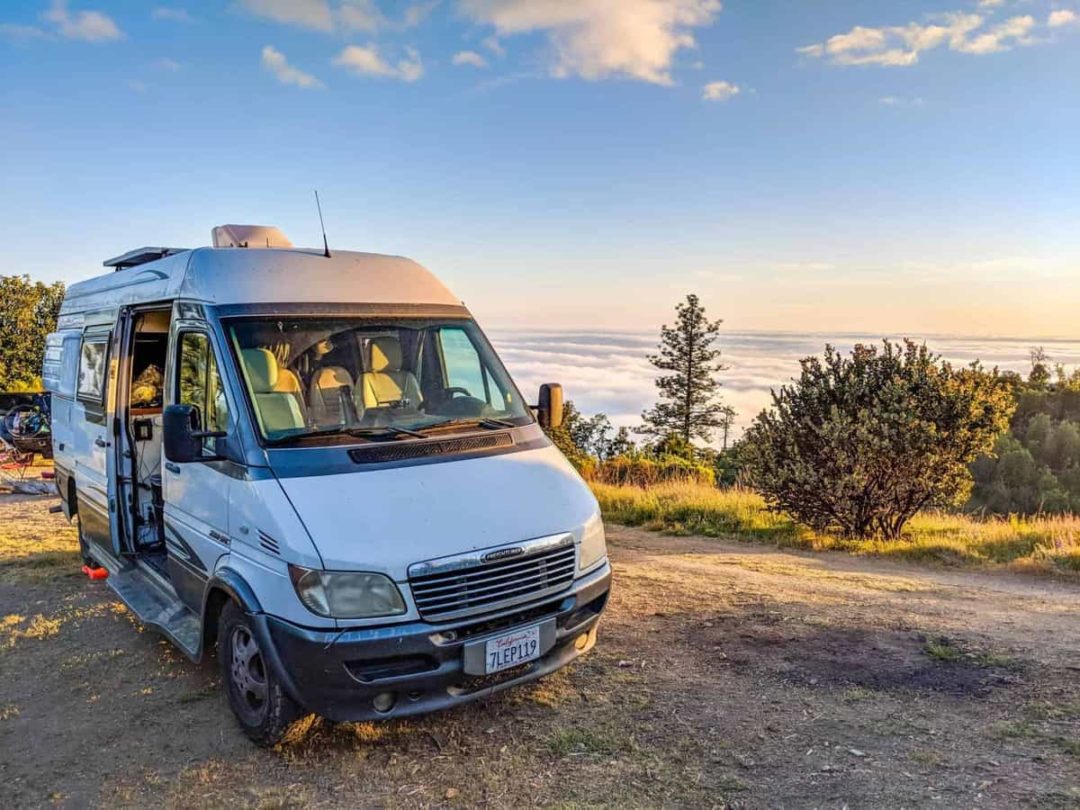
Non-traditional campsites
Even on a holiday weekend, you may be able to score a great campsite if you’re willing to look at some of the newer, non-traditional options.
Harvest Hosts, which is for self-contained RVs only. There’s a fee to join—however, with what you gain access to, the fee could pay for itself in one night. Harvest Hosts hooks you up with a directory of businesses—including farms, ranches, vineyards, restaurants, and more—who are willing to let you to camp on their property for the night. You’re generally expected to buy something from the business ($20 or more is suggested), but you could end up with a very unique experience on the cheap.
Couchsurfing provides a global network of people who are willing to open their doors to strangers, potentially show them around town, or maybe just offer up a driveway to park in. The site takes pains to verify the identities of surfers and surfees. I’ve personally had amazing experiences with couchsurfing. From it, I have made friends that have lasted more than a decade.
Warmshowers describes itself as “a community of bicycle tourists and those that support them.” Obviously, this is geared at cyclists, but I know some vanlife folks that are also cyclists who have tapped into this network with great success.
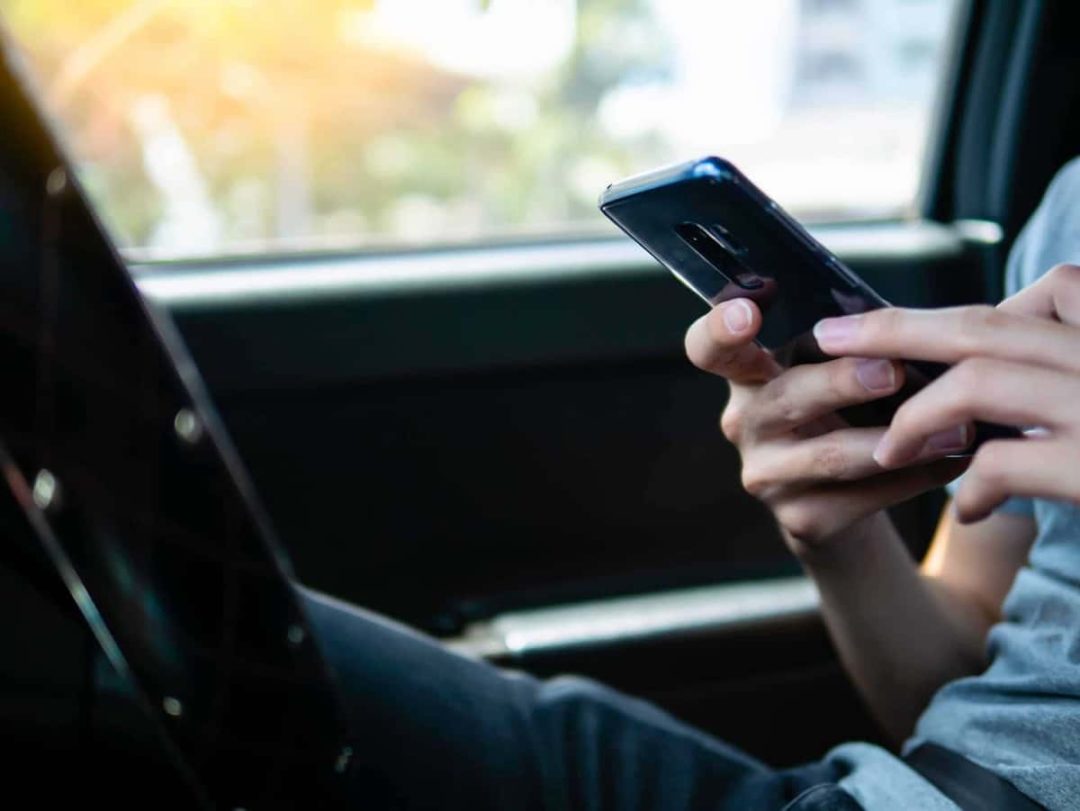
Final thoughts
Ultimately, the best campsites I’ve ever found have been those that came to me via word-of-mouth. Talk to your friends who have been to the areas you’re traveling to. Talk to your waiter or bartender and see what they think. Get on forums and see what others have done before you. Your dream spot may not appear in any search results. However, a friend or a friend of a friend may be willing to share their insight. And that kind of community mindshare is one of the best parts of the road trip experience anyway.

